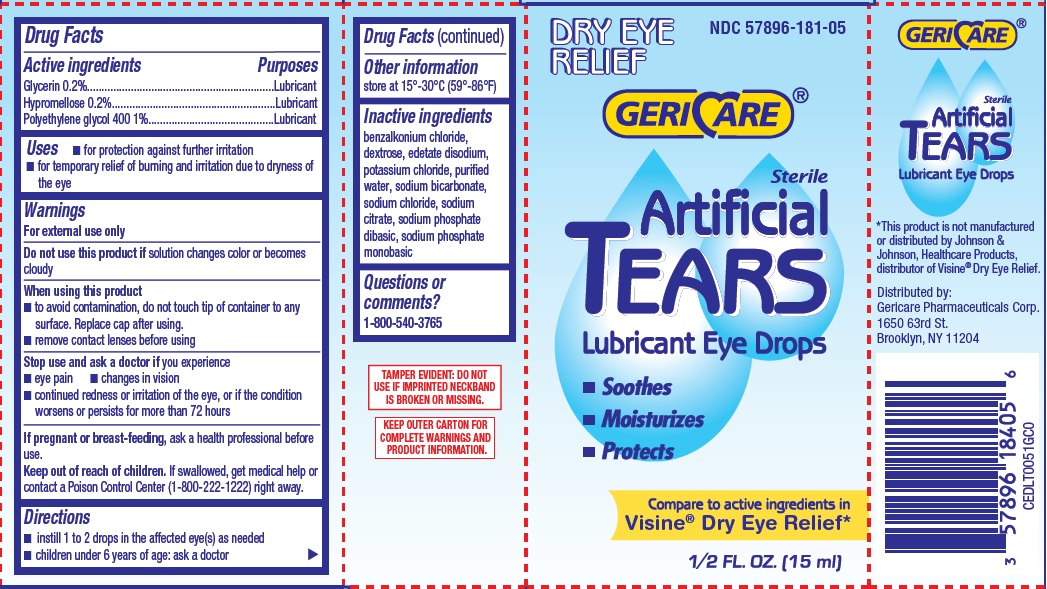Artificial Tears | Glycerin Solution/ Drops while Breastfeeding

What is Artificial Tears | Glycerin Solution/ Drops used for?
Brief: Lubricant
I am currently breastfeeding and I want to know if using Artificial Tears | Glycerin Solution/ Drops is safe for my kid? Does it have any effect on milk production?

Artificial Tears | Glycerin Solution/ Drops Breastfeeding Analsys
Glycerin while Breastfeeding
Low RiskCAS Number: 56-81-5
Glycerin or glycerol is a normal component of human tissues. Involved in lipid and galactose synthesis which is metabolized to glucose or glycogen.It is found naturally in breast milk, with a highest concentration in colostrum. When it is used rectally as a laxative, has little or no absorption. It has been used in preterm infants. The oral or intravenous administration is rarely used (extracellular edema, intracranial hypertension, diagnosis of Meniere's disease). A short half-life span makes it compatible with breastfeeding in these rare cases.It also compatible with intraocular administration. It has been used in creams and gels to treat pain and cracks of nipple during lactation without clear results on effectiveness. In those cases it should be cleaned thoroughly with water before the next breast suckling to prevent it could be swallowed by the infant, since a high intestinal absorption may induce an increased plasma osmolality that can result in dehydration of the infant.
Hypromelloses while Breastfeeding
SafeCAS Number: 9004-65-3
We are working on a comment for this product.
Polyethylene glycol 400 while Breastfeeding
SafeOsmotic laxative drug which is not absorbed. Long linear polymer. Molecular weight 1.000 to 35.000 daltons.
What if I already have used Artificial Tears | Glycerin Solution/ Drops?
Artificial Tears | Glycerin Solution/ Drops is in the category of low risk, if you have already used it then its not a big deal if health and behavior of baby is good. However your health care provider shall be aware of the fact that you have used Artificial Tears | Glycerin Solution/ Drops so you should inform him based on your convenience.
My health care provider has asked me to use Artificial Tears | Glycerin Solution/ Drops, what to do?
Artificial Tears | Glycerin Solution/ Drops comes in category of low risk and if your doctor is aware that you are breastfeeding it should be ok to use
If I am using Artificial Tears | Glycerin Solution/ Drops, will my baby need extra monitoring?
Not much monitoring required while using Artificial Tears | Glycerin Solution/ Drops
Who can I talk to if I have questions about usage of Artificial Tears | Glycerin Solution/ Drops in breastfeeding?
US
National Womens Health and Breastfeeding Helpline: 800-994-9662 (TDD 888-220-5446) 9 a.m. and 6 p.m. ET, Monday through Friday
UK
National Breastfeeding Helpline: 0300-100-0212 9.30am to 9.30pm, daily
Association of Breastfeeding Mothers: 0300-330-5453
La Leche League: 0345-120-2918
The Breastfeeding Network supporter line in Bengali and Sylheti: 0300-456-2421
National Childbirth Trust (NCT): 0300-330-0700
Australia
National Breastfeeding Helpline: 1800-686-268 24 hours a day, 7 days a week
Canada
Telehealth Ontario for breastfeeding: 1-866-797-0000 24 hours a day, 7 days a week
